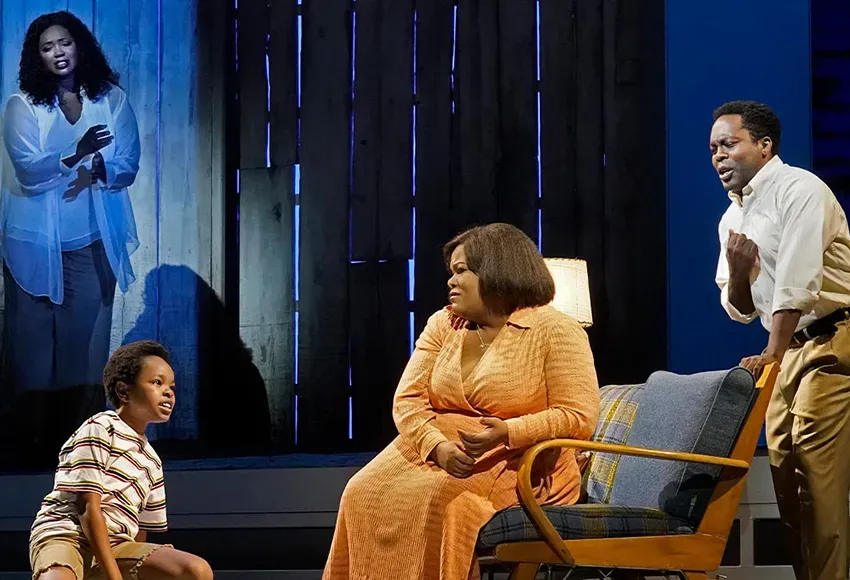Are we entering a new "golden age of opera"? Two new, very popular operas, both from Black librettists, Black directors, and all-Black casts, seem to raise this question. One of them, Blue, is currently playing to enthusiastic audiences at Seattle Opera. The other, Fire Shut Up in My Bones, was very recently shown as part of the "Met: Live in HD" series at your local cinema.
I want to stress that both these works are the very opposite of elitist, esoteric, or difficult to encounter. They are, in the best sense of the word, popular. Fire was immediately hailed as an "instant classic" by critics and audiences alike.
What's more, they are drawing in crowds of people who are new to opera. Back in the 1990s, the phenomenon of "The Three Tenors" tours and recordings was predicted to do the same thing: open up opera to the masses. Didn't happen! But I suggest that new operas like Blue and Fire are doing far more to interest new audiences than even the best singers could ever hope to accomplish cranking out chestnuts, ripped from their context in great operas.
I might suggest that you search YouTube for excerpts of Blue and Fire, but please accept that these snatches of the fabric of these works cannot begin to convey the emotional impact of seeing them whole. Simply put, great opera is great theater. Excerpts are not. Even attempting, via excerpts, to discover if a composer's music is friendly to your ears is a poor test when torn out of context.
The music of these two operas could hardly be more different, though neither was atonal or hard on the ears. Having seen each of them only once, I can give little more than general hints.
Fire, by Black composer Terrence Blanchard, is much the more jazzy and more infused with traditionally Black sounds and rhythms.
Blue, by Jeanine Tesori, is no less brilliant, especially in its orchestration. Actually, I wished at times during the February 27 performance that I could listen to the orchestra by itself. It was so interesting that it drew attention to itself, often drowning out the singers with loud brass. Somehow this seemed more the fault of the composer than, as is usually the case, the conductor. The score seemed to demand to be played loud, although every outburst was followed by quieter passages.
Blue ended with a standing ovation (as did Fire in "Met: Live in HD" at the cinema on October 23). Thus, I put it in a category of new operas that are sure to pull in new audiences.
But I must admit that this opera did not move me. I loved the orchestra, and all the singers were fine, with "nurse/congregant 1" (soprano) and "the son" (tenor) as standouts. Yet the libretto, by Tazewell Thompson, had nothing new, nothing that anyone passionate about civil rights hasn't seen or read at least as effectively elsewhere.
As further testimony that we may be entering a period of glorious new operas, let me submit Andrew Aucoin's Eurydice, as seen at the cinema ("Met: Live in HD," December 4). This gorgeous and thrilling work was one of no less than three new works presented this season at the Metropolitan Opera, an institution long criticized as a museum of old, fossilized operas. (The third, after Fire and Eurydice, is Brett Dean's Hamlet, due at your cinema on June 4 at 9:55 a.m. – live from the Met stage.)
This revolution at the Met is no doubt the gift of its new, openly Gay music director, the French Canadian Yannick Nezet-Seguin.
Those "Live in HD" shows (and modern Blu-ray discs) make me want to shout out the glories of modern technology as it relates to opera today. But for that, I need a whole article in itself.


